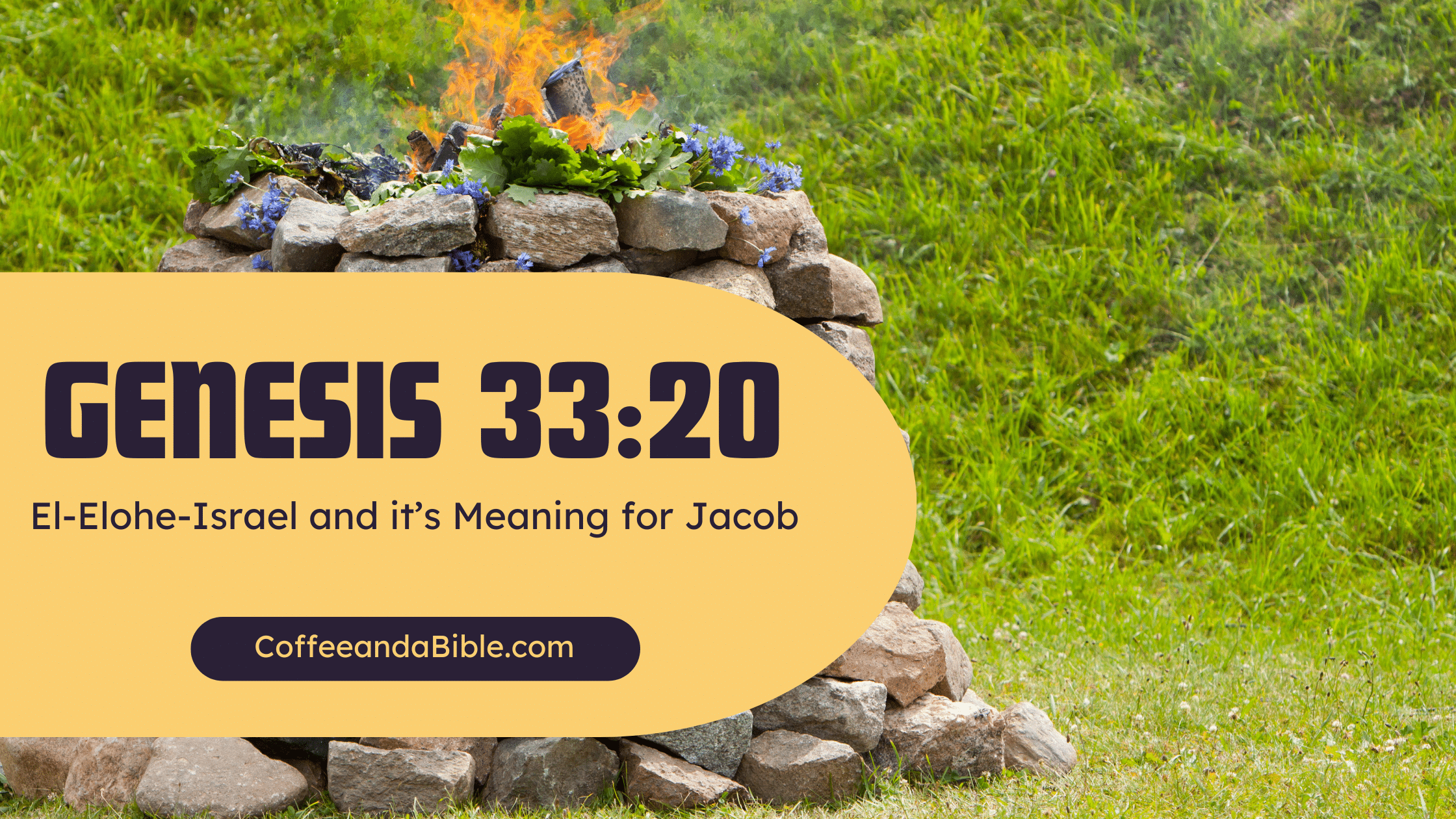It’s not uncommon to see people in Scripture building altars.
Moses built one after the defeat of the Amalekites (Exodus 17:15). Noah built one after the flood (Genesis 8:20). Joshua built one after crossing the Jordan to conquer Canaan (Joshua 4:19-24).
This wasn’t even the first time that Jacob built an altar…or the last. He built a “pillar” in Genesis 28:18 after wrestling with the angel, and then returned to it in Genesis 35 to turn it into an altar.
It makes sense then, that one of the first things that Jacob did when he got to Canaan and bought his land was to erect an altar. He got it at a bargain price; just 100 pieces of money from the sons of Hamor.
Like other altars, this one had a specific designation: El-Elohe-Israel. Translated, it literally means “God, the God of Israel.”
That’s a unique name; in fact, it’s the only time in the entire Bible that name is used.
What makes it remarkable is how utterly generic it is. Unlike names like “the God who sees” or “Lord of Hosts,” the name of “God, the God of Israel” just says who He is. In a way, it’s a little like the name gave Moses to describe Himself to Pharoah: “Tell him that ‘I Am’ sent you.”
So, why would Jacob give this altar a name that doesn’t seem to really say much?
The beauty is in its simplicity. If you think about where Jacob had been over the last 20 or more years of his life — with Laban, running from Esau, using a rock for a pillow — the one constant in his life was God.
And, since his name was just changed to Israel from Jacob (Genesis 32:28), the name is less universal, and more specific. In other words, we think of Israel as a nation of people. For Jacob, at that time, he was most likely just thinking of himself.
It says a lot about Jacob that his very first order of business in establishing his new home would be setting up an altar towards Jehovah. Whereas his wife Rebekah had stolen the household gods from her previous home, Jacob’s devotion had always been towards his God.
